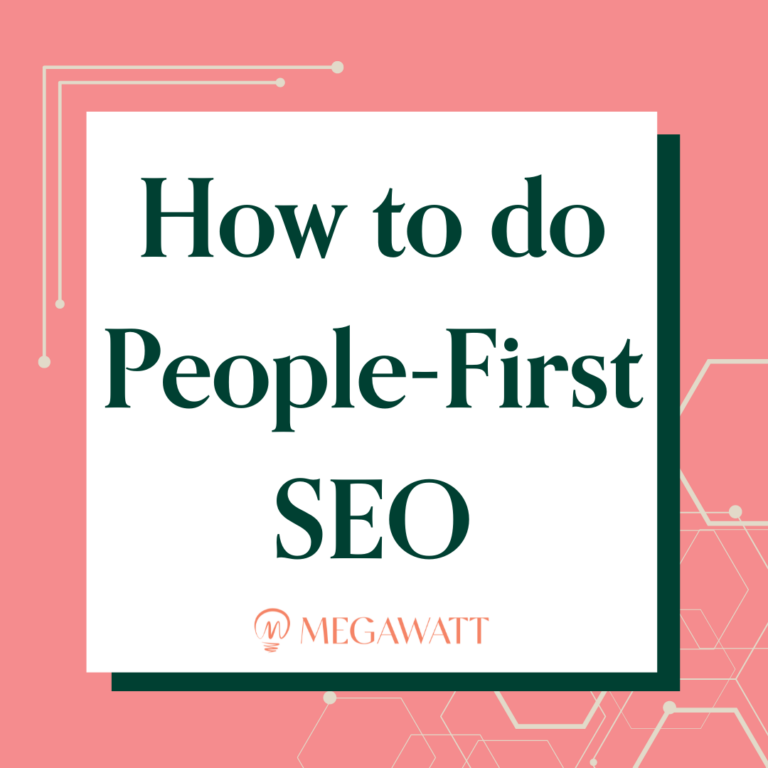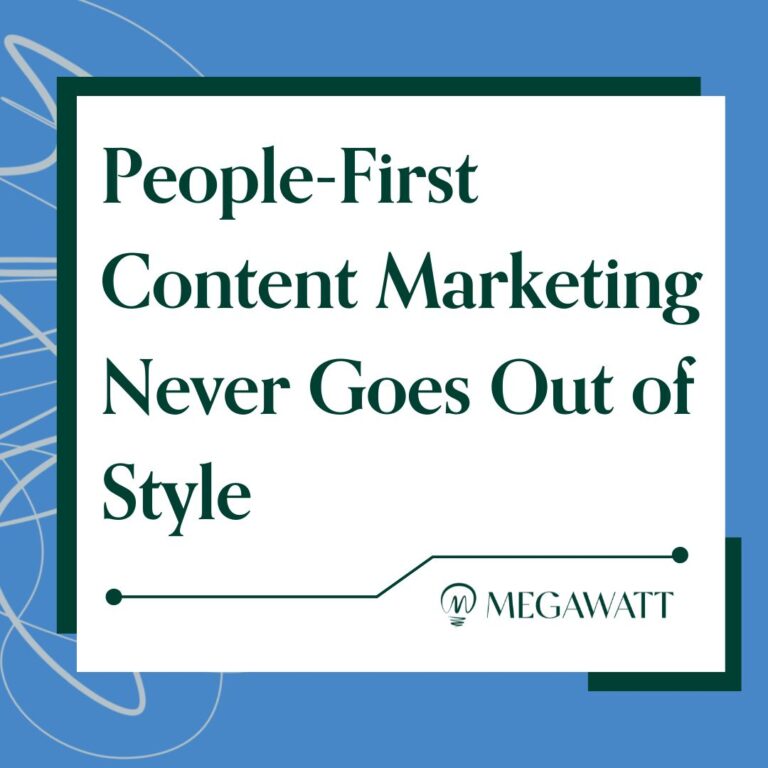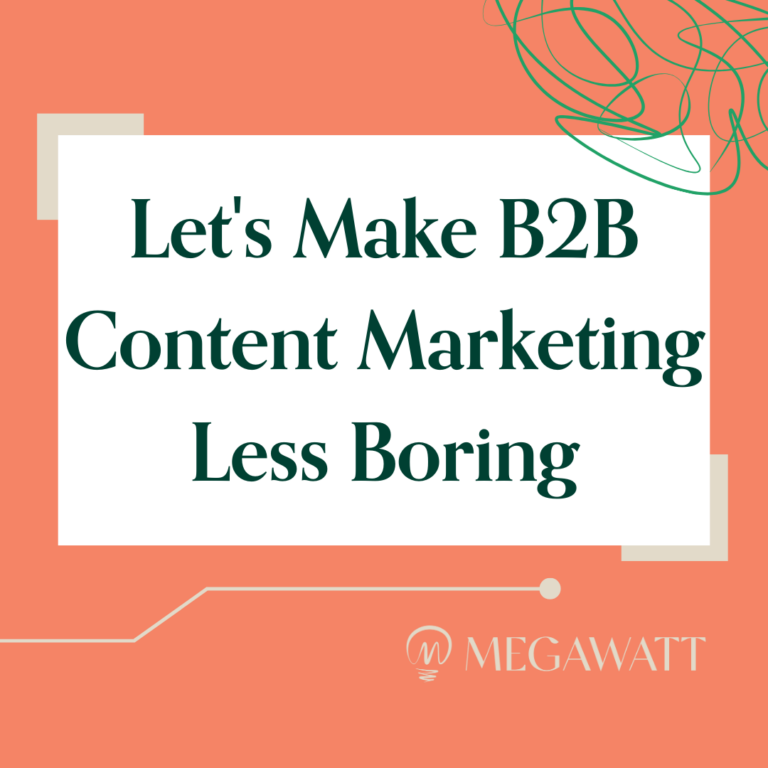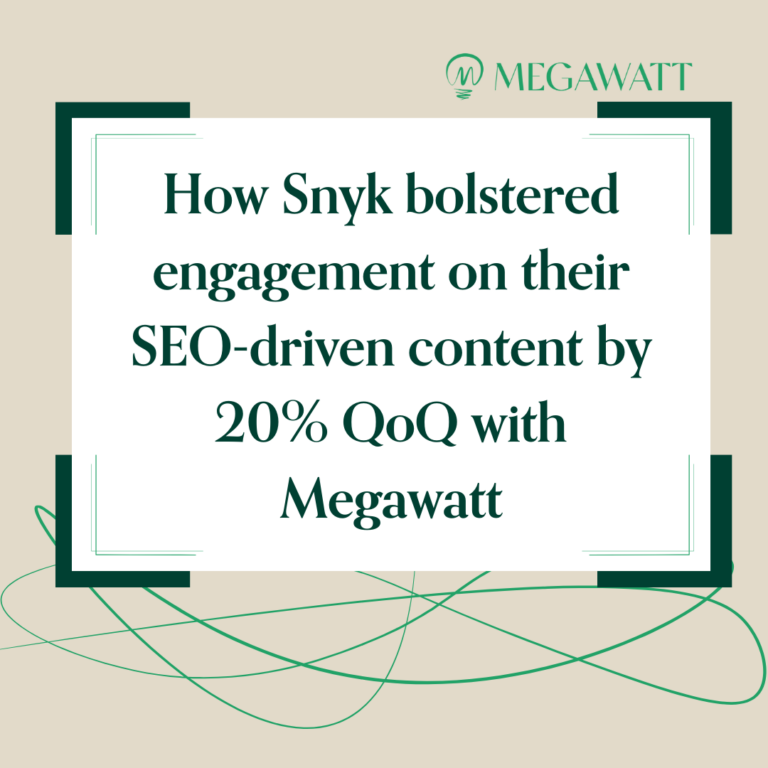6 Tips to Get the Most Out of Working with a Content Agency
Partnering with a content agency is a great way to elevate your marketing strategy, expand your team’s expertise, and increase your bandwidth internally. An agency team provides a wealth of knowledge about content marketing best practices, distribution tactics, and how best to reach and engage with your target audiences. Plus, agencies bring a streamlined process — and toned writing muscles — to the table, which allows you to significantly accelerate your content output.
But, finding the right agency partner and settling on a defined scope of work is only the first step. To get the most out of your investment, it’s important to organize your team so you can provide your agency partner with the right resources, support, and access on an ongoing basis. As with anything, the more you put into the relationship, the more you get out of it.
Over the years, we’ve worked with many companies on a range of retainers and projects and have found some commonalities among the most successful working relationships. No matter the size of your company or agency retainer, certain best practices significantly improve your working relationship and the impact you and your agency partner can have together.
Read on for our top tips to get the most out of working with a content marketing agency.
1. Treat Your Agency as a Strategic Partner
Agencies are full of creative minds and multi-faceted marketing experts who work with a variety of companies both inside and outside your industry. Use that knowledge and experience to your advantage and let your agency share ideas, insights, and opinions about what they’ve seen work and not work well.
You might already have a list of priority content you want your agency to create, and that’s a great start. But don’t fall into the trap of treating your agency like a content mill. You won’t get the best results by just asking your writing team to turn your list of ideas into 800+-word articles. True agency value happens when you allow your agency team to bring you new ideas you haven’t already thought of, and leverage their content expertise to get you results.
Let the agency create a strategy for you, and listen to their ideas about content types, topics, and distribution strategies that will meet your company’s content goals. Ask hard questions. Agencies are most valuable when they provide you with fresh — and research-backed — opinions that enhance those of your team, not when they simply execute on a list of ideas you already have.
2. Connect Your Agency with Internal Resources
At the end of the day, no one will know more about your company than your founder, or more about your product than your developers, or more about your customers than your customer success team.
A great content agency will excel at gathering, interpreting, and compellingly presenting that knowledge to your target audiences. But their ability to do so depends on gaining access to your internal subject matter experts who can share their wisdom and ideas. As a main point of contact for an agency partner, your job is to create those connections and help foster relationships that give your content team the ammo to do their jobs effectively.
Play matchmaker to introduce your content agency team to the right internal experts and encourage your internal experts to engage with the content team in return (hint: you’ll need internal buy-in about the value of content). The more you can do to set up calls between subject matter experts and the content team or solicit internal reviews to get drafts approved and published, the better.
And playing matchmaker doesn’t end with SMEs. Content marketing bleeds into multiple departments within your organization. Content supports sales efforts and customer support, inspires customer loyalty, helps with public and investor relations, and more. Connect your marketing agency with other department leads so everyone can get on the same page about what assets are needed most and how content will be used to truly support and accelerate the business. It’s also helpful to share strategic plans and KPIs from across your organization with your content team and to invite a representative from the content agency to internal brainstorms or QBRs. This will ultimately give the content team better context into your organization’s strategy and how best to support it.
3. Set Realistic Expectations
It’s tempting to want immediate results. After all, you need to prove a return on your investment to keep internal stakeholders happy and your budget in check. But remember the realities of your business and of content marketing strategies in general.
In the world of B2B and enterprise technology, buying cycles are long and complex. In fact, a recent report found that most companies are on a 6-12 month purchase cycle for cybersecurity solutions. That means it takes up to a year just to budget for and implement a new solution. This figure doesn’t even factor in all the time it takes to gain problem awareness and discover potential solutions.
Prospects need multiple touchpoints with your business before they are ready to take action. So you can’t expect a single content piece (or a single sales call, for that matter) to drive an instant conversion. Instead, create campaigns that engage prospects at every aspect of the funnel and nurture them in a discovery journey that includes multiple brand touchpoints—and assume those touchpoints happen over a period of time.
With the long game in mind, a good content agency will propose things like an email nurture sequence that engages prospects over the course of a year, a thought leadership campaign that builds buzz around your executives and company through a variety of channels, or a series of optimized blog posts that increase organic traffic to your website over time (by the way, SEO success doesn’t happen overnight either — it can take months for even the most well-optimized page to start ranking in search).
4. Eliminate Bottlenecks in the Approval Process
Content agencies operate as a third-party extension of your organization. As such, they often don’t have carte blache to provide final approval on content assets or publish them from your organization’s channels at will. That’s where you need to hold up your end of the bargain.
As an agency’s main point of contact, you should commit to providing timely reviews and final approval on all deliverables. Otherwise, drafts of assets get tied up in a bottleneck and never see the light of day, which removes any possibility that they will provide value for your organization.
Managing an agency isn’t supposed to drain your time, but you do need to commit to timely reviews and regular correspondence, just as you would with any other team member. To simplify things, we recommend a weekly or bi-weekly status calls where you can connect with your agency team about any items in progress and remove bottlenecks in real time. Our partners have also found it helpful to block a specific day/time of the week for content reviews or approvals so a long list of content to-dos doesn’t become overwhelming.
Finally, remember that your work with an agency is ultimately a partnership—not something you “set and forget.” Each side has to contribute something to the collaboration and participate in good faith to get the best results.
5. Provide Honest Feedback
Giving direct criticism can be unpleasant, but a good agency team actually welcomes your constructive feedback. Agencies want to know if their tone of voice isn’t hitting the mark, if assets aren’t returning the intended value, or if internal stakeholders are questioning the value of content — so they can act accordingly to get you what you need. If you fail to provide regular, honest feedback to your agency, you will do yourself and your company a great disservice
Remember that agency teams work with many different accounts and are extremely comfortable writing to reflect different styles, switching up processes to fit different organizational cultures, restructuring teams to put the right experts in place, and more. If something isn’t working, your agency can likely make a shift to better suit your needs. So don’t suffer in silence. Be honest, so your team can get you what you need.
If you don’t know how to express what is off about the deliverables or service you’re receiving, that’s okay. Agency teams are used to having hard conversations and can ask questions — or provide options — to help you make sense of things and better understand what you want and need.
6. Share Data About Performance
In the spirit of being honest, we highly recommend providing your agency with access to performance monitoring tools like Google Analytics. As a third party, your agency won’t know how a blog post, email campaign, or downloadable ebook performed without access to your data.
With access to this valuable performance data, your agency team can optimize their efforts and make educated recommendations about what other strategies to pursue in the future.
Save yourself the hassle of being a middle-man between your internal analytics team and your agency. Let the agency access your tools so they can pull performance reports directly at any time and proactively track performance on the assets they deliver and campaigns they execute.
Protect Your Investment
Agencies are there to support you and make your life easier with extra bandwidth, creative ideas, and top-notch industry knowledge. But they can’t do their best work without input and participation from you and your organization. Follow these best practices to get the most out of your agency partner — without draining your time and resources.
Looking for an agency to up-level your company’s content marketing efforts? Contact Megawatt today.
Sign up for The Spark, our biweekly newsletter full of ideas to power up your content marketing engine.
Become a full-stack content marketer
For some in the industry, this will be an uncomfortable change. Many content marketers have been successful in their profession thus far because of their aptitude for writing. Now, successful content marketers will also need to be comfortable:
- Turning written content into visual assets (and using tools that help you do so).
- Understanding email and social media marketing strategies (including targeting capabilities and how to interpret analytics).
- Understanding the B2B sales process and how to convert traditional content marketing assets (blogs) into sales tools like talking points, call scripts, etc.
- Being creative and thinking outside the box to plan events, build communities, or execute on-site activations at industry conferences.
With an emphasis on new skills and cross-functional work, I’d argue that it’s time to drop the word “content” from “content marketer” (and “email” from “email marketer” and so on). We need to consider content as all assets an organization produces on its own behalf. Emails are content, call scripts are content, and LinkedIn posts from executive leadership are content. Modern marketers need to know how all these engines work together to reinforce a unified message.
![]()
Stop being boring
Which parts of your current content marketing strategy are boring? Is it your tone of voice? Is it the limited scope of channels in which you try to reach prospects? Is it something else?
Try to start with a small change and think about the fundamental goal of marketing: to communicate with people. Your persona research might tell you that your buyers have serious problems and budget constraints. But at the end of the day, everyone is human. A serious problem or need doesn’t mean audiences will only respond to information formatted or written in a somber tone.
We’re humans who crave connection, and sometimes humor or fun is the best way to relate to others genuinely and elicit a reaction. So don’t be boring. Be real and help your audience feel like you understand them, you can be trusted to provide a solution, and you’ll be fun to work with along the way.
Here are several creative B2B content campaigns that are anything but boring:
- Atlassian BitBucket’s Teach me How to Spoon video
- ZenDesk’s Zendesk Alternative webpage (bonus, this is also an SEO play!)
- Black Kite’s Cyber Villains content campaign
Change is good
It’s a weird time to work in tech, especially tech marketing. We’re undergoing radical changes, and yeah, some of them are scary and maybe even a bit exhausting, particularly if you’ve been rowing really hard in the other direction.
But these changes are also a huge opportunity to be ahead of the curve. Invest in immersive content campaigns with clear and varied distribution methods. Develop a strong point of view. Get creative.
And along the way, maybe we can have some fun too?
If you’re not sure where to get started navigating this rocky new terrain, Megawatt can help!
Contact us today to learn more about our content services.






